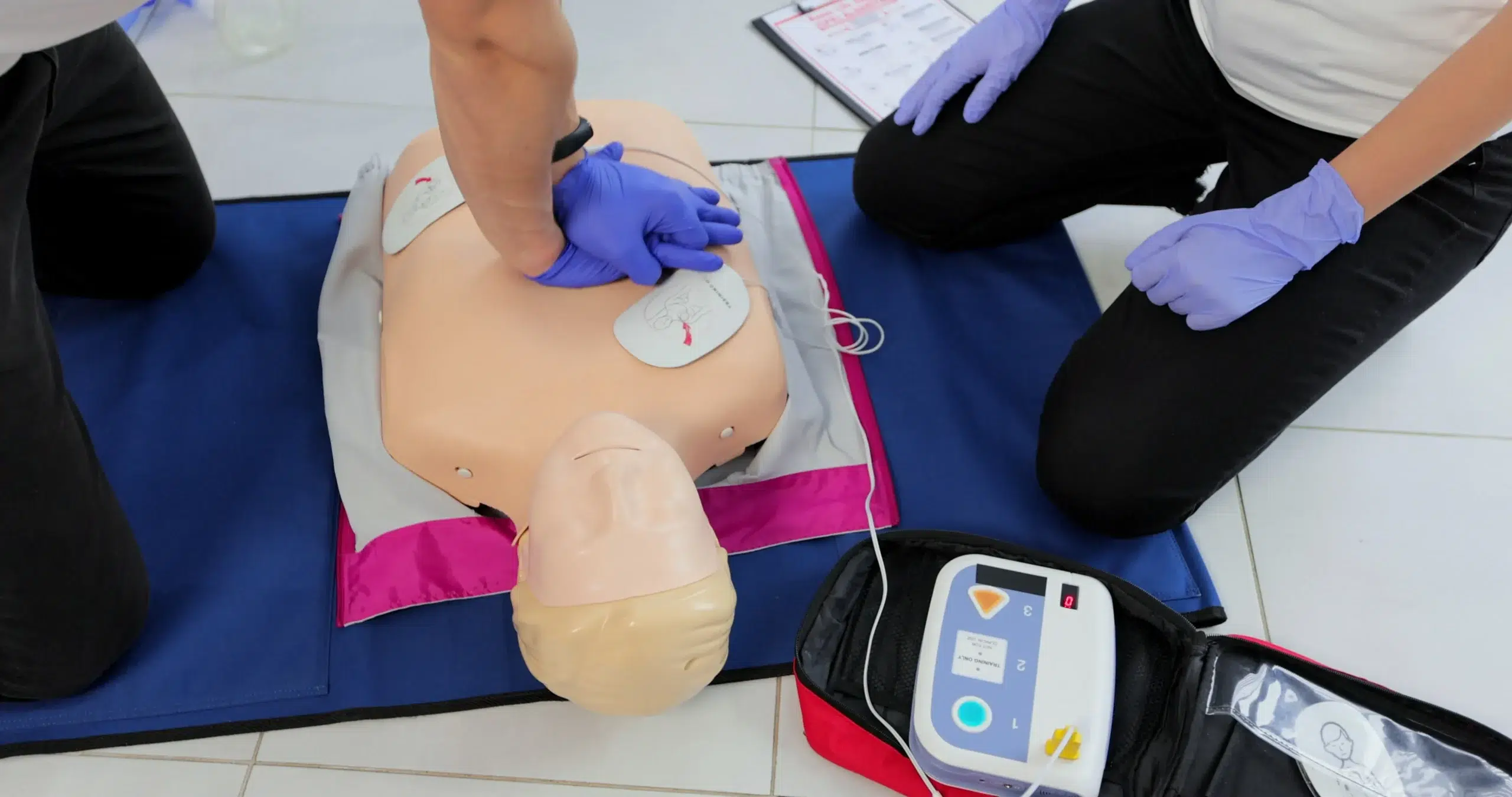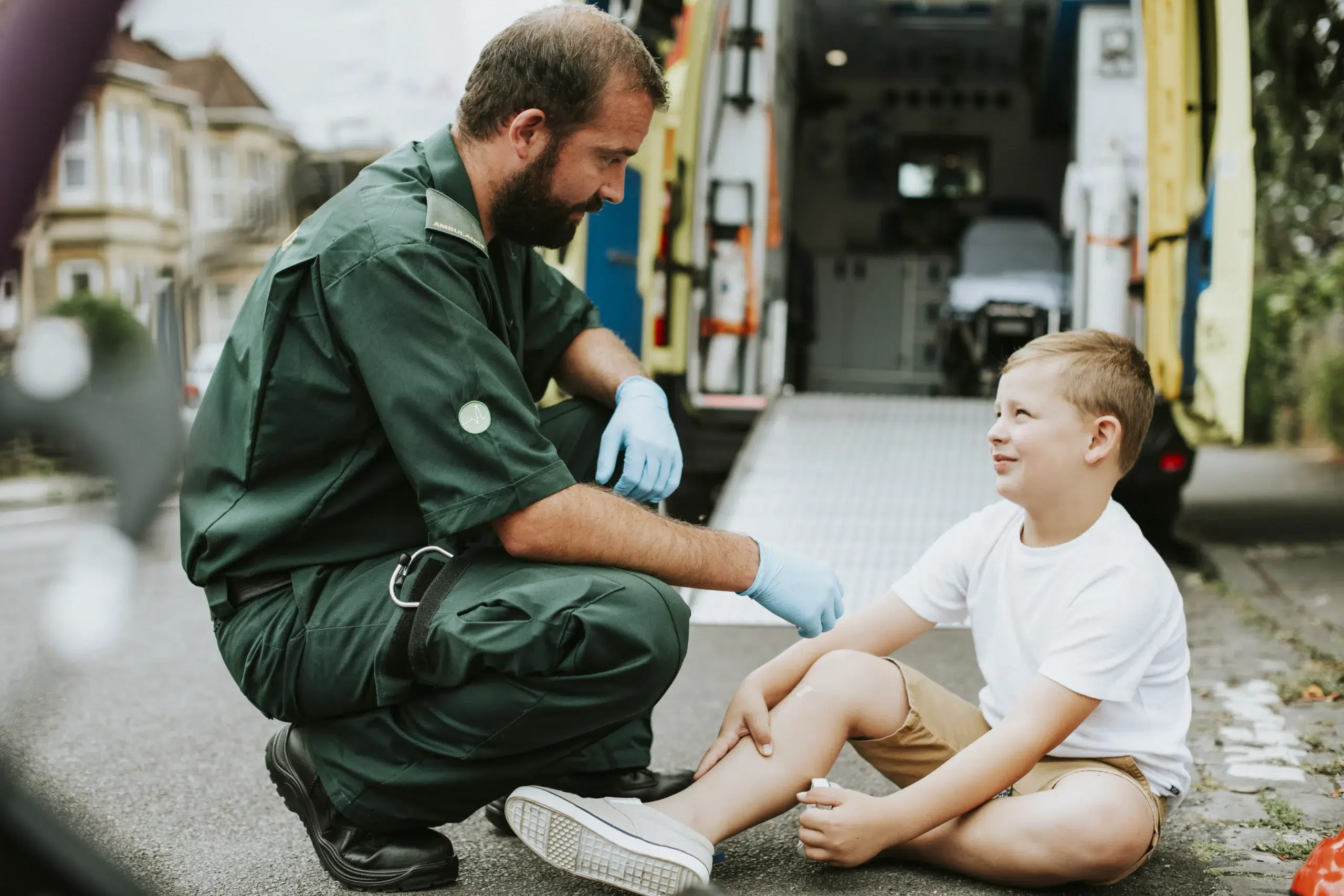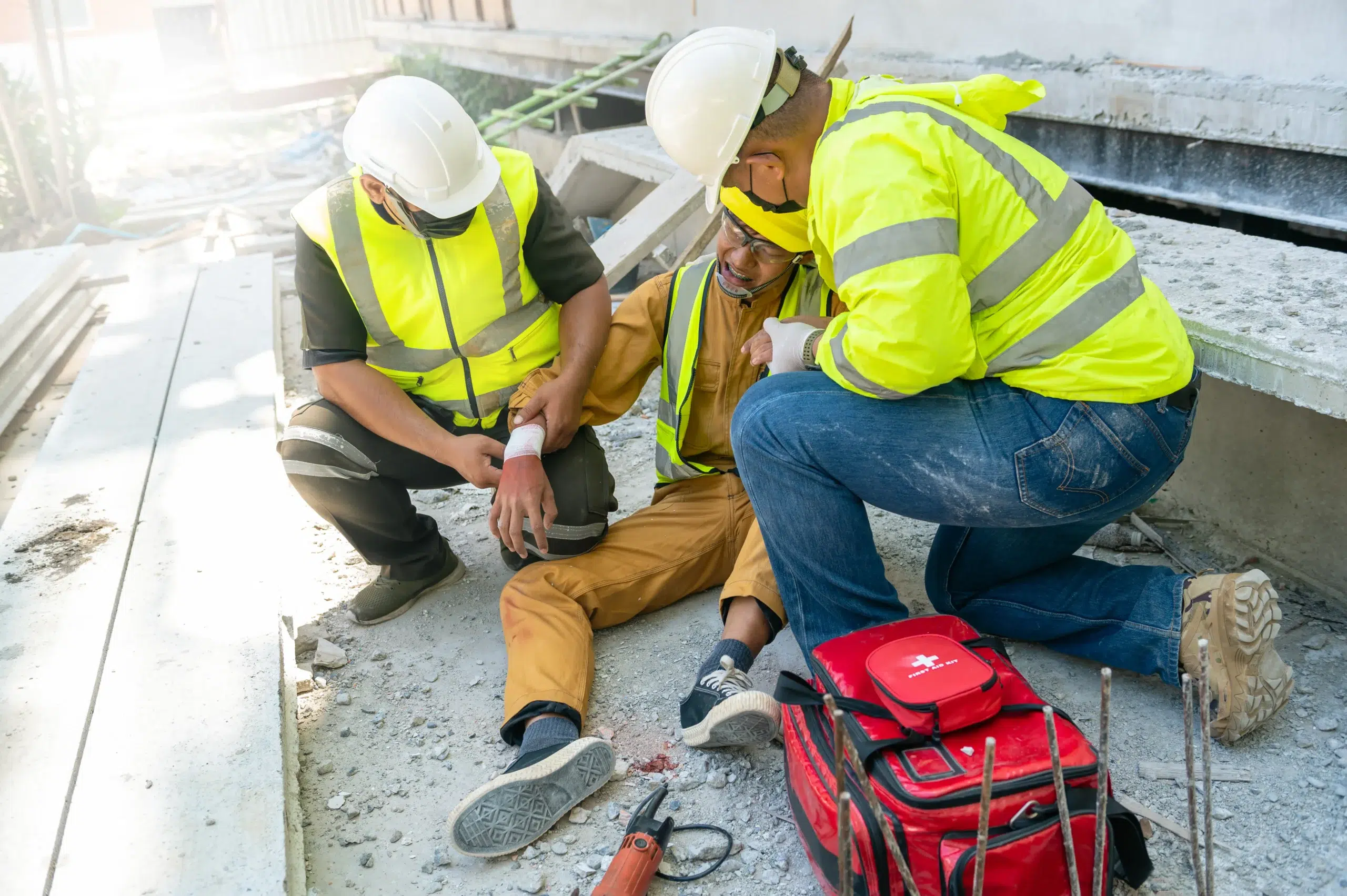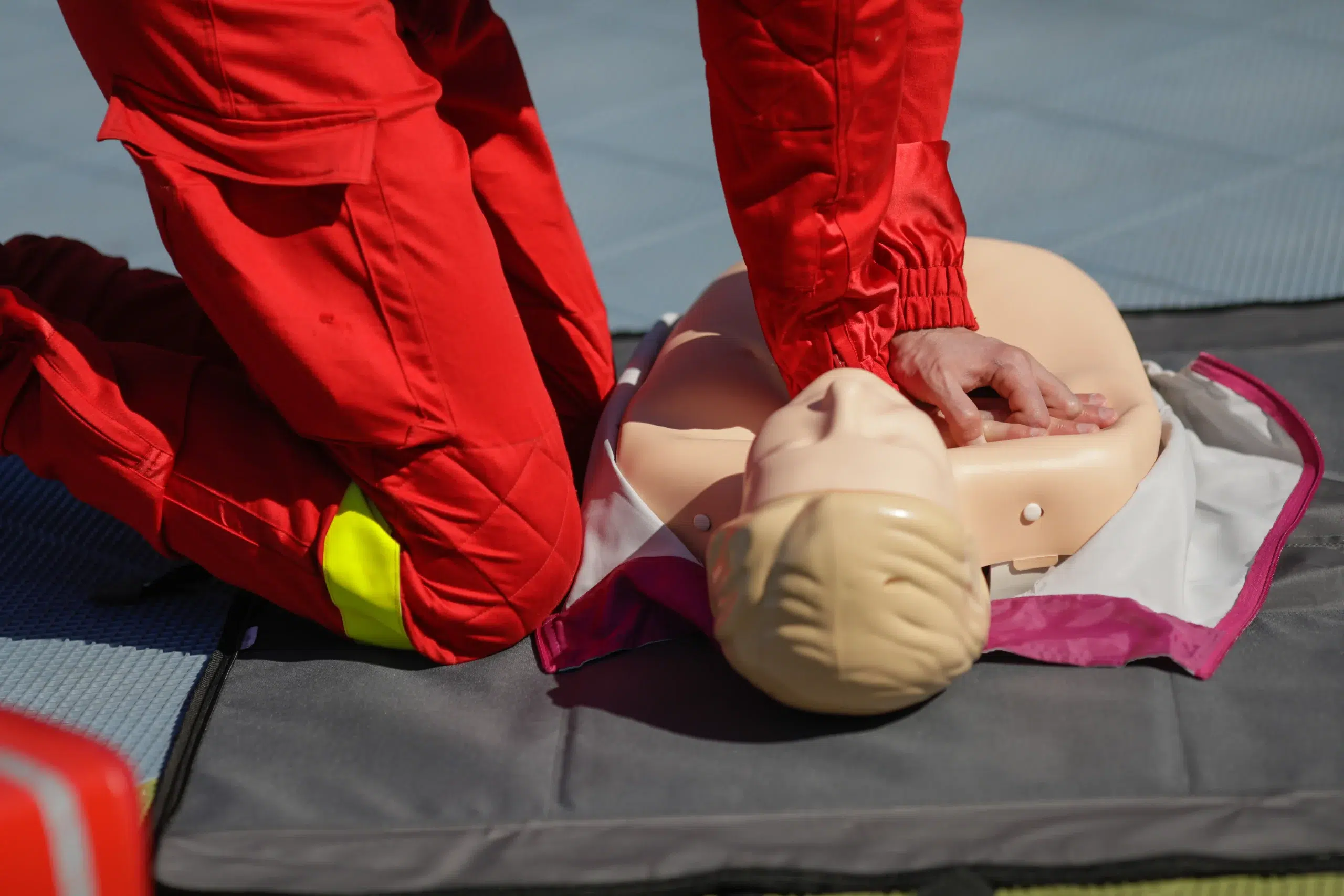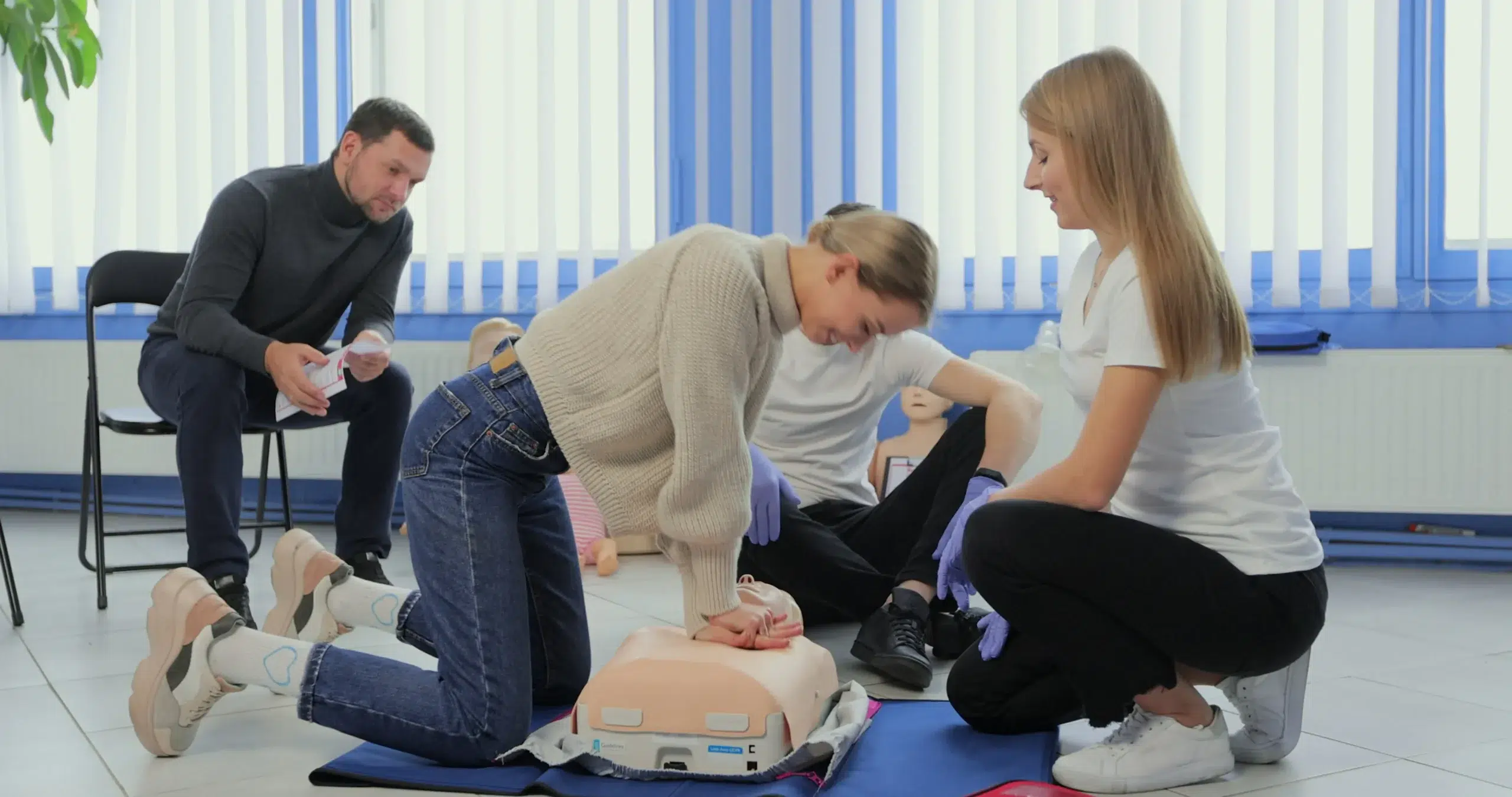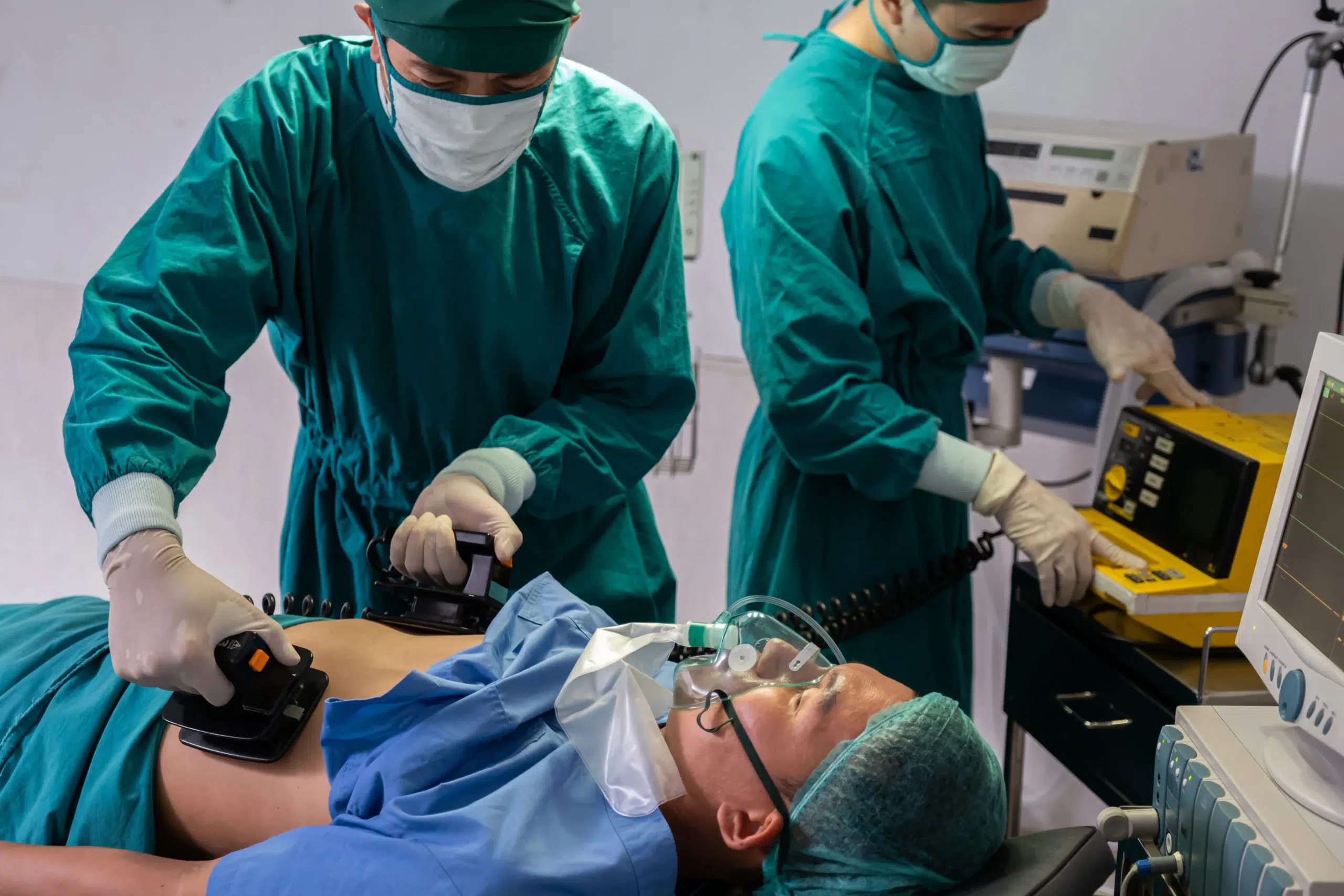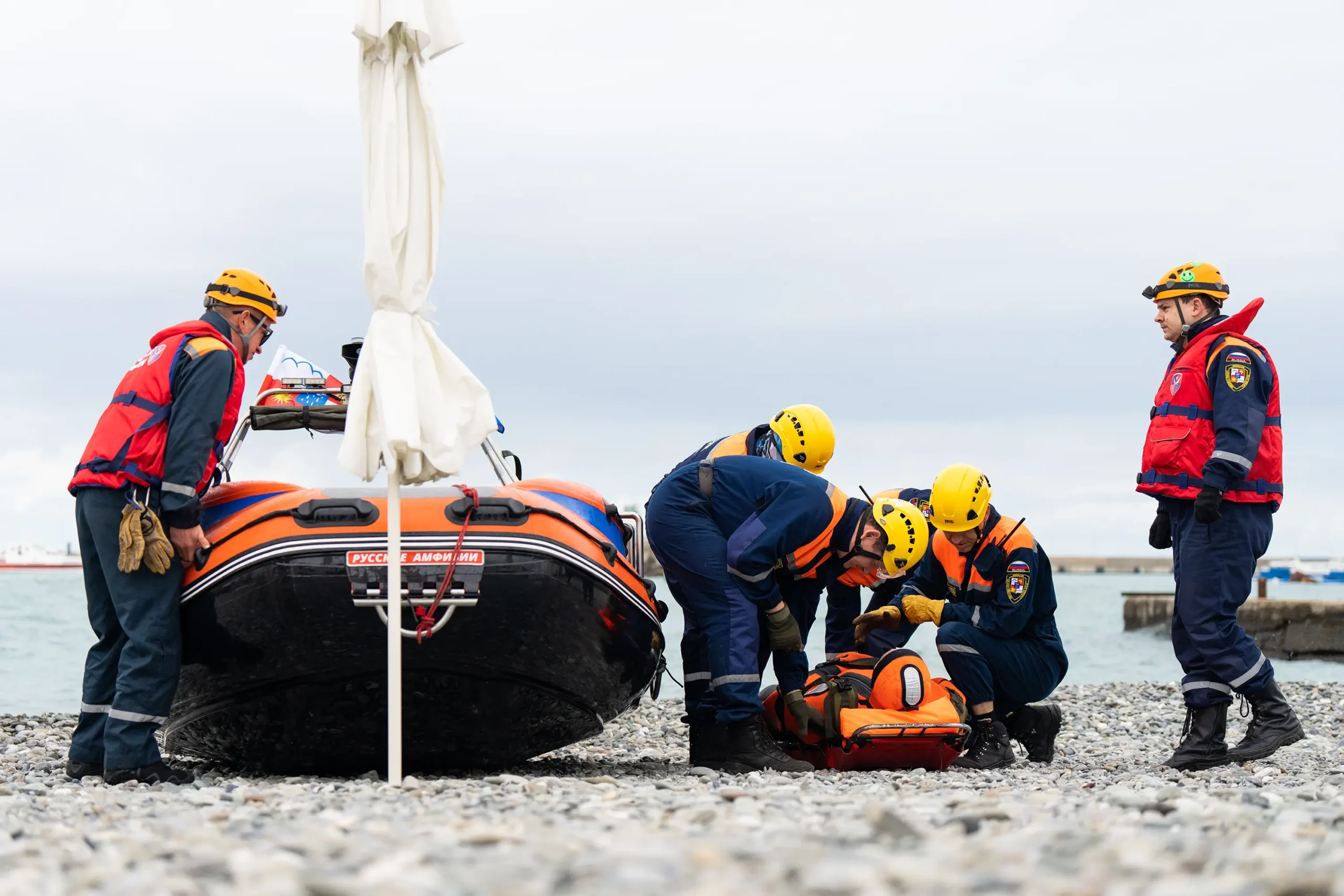Emergencies happen, and being prepared can save lives. BLS certification in Millbrae provides the training you need to respond effectively in critical situations. This comprehensive guide explores the world of BLS, from understanding its core components to finding the right course and preparing for your certification. We’ll discuss who benefits from BLS training, what to expect during the course, and how to choose a reputable provider in Millbrae. Whether you’re a healthcare professional, a caregiver, or someone who wants to make a difference in their community, this article will equip you with the knowledge to pursue BLS certification in Millbrae with confidence.
Key Takeaways
- BLS certification provides essential life-saving skills. From CPR and AED use to recognizing medical emergencies, BLS training equips you to respond effectively in critical situations. It’s a valuable asset for everyone, especially those working in healthcare or caring for others.
- Choosing the right BLS course matters. Prioritize AHA-certified providers with experienced instructors and a hands-on approach. Consider class size, schedule flexibility, and student reviews when making your decision. Remember to ask about refresher opportunities to maintain your skills.
- Preparation and ongoing practice are key to BLS success. Review course materials in advance, actively engage during training, and seek opportunities to refresh your knowledge. BLS certification is an investment in your ability to make a difference in emergencies.
What is BLS Certification?
What is BLS & Why is it Important?
BLS stands for Basic Life Support. It equips you with the skills to respond to life-threatening emergencies, covering everything from CPR (cardiopulmonary resuscitation) and using an AED (Automated External Defibrillator) to essential first aid and recognizing the signs of a medical crisis. Think of BLS certification as your toolkit for saving lives—the bridge between the moment an emergency strikes and the arrival of paramedics or professional medical help. The goal? To keep someone alive and stable.
BLS provides a more comprehensive approach than standard CPR training. It gives you the confidence to act quickly and effectively in various situations, from choking incidents and heart attacks to strokes and drug overdoses. The training emphasizes early intervention and high-quality CPR, both crucial for improving survival rates. Learn more about our CPR and First Aid Certification courses.
Who Needs BLS?
While anyone can benefit from BLS training, it’s especially important for certain professions. Healthcare providers, like doctors and nurses, often require BLS certification. Other essential fields include emergency services (firefighters, police officers, EMTs), lifeguards, and teachers. If your work involves caring for others or puts you in situations where emergencies might occur, BLS training is invaluable.
Even outside these professions, consider the peace of mind that comes with knowing you can handle a medical emergency. Parents, grandparents, caregivers—anyone interested in being prepared—can take a BLS certification course and gain potentially life-saving skills.
Key BLS Training Components
What will you learn in a BLS certification course? The curriculum covers essential skills, including CPR for adults, children, and infants, how to use an AED, administer emergency oxygen, and control bleeding. Many courses also include training on relieving choking and responding to other common medical emergencies. The American Heart Association sets the standards for BLS training, ensuring high-quality, evidence-based instruction. Millbrae CPR Classes offers comprehensive BLS certification courses that meet these standards, giving you the knowledge and practical skills to respond effectively in critical situations. We also offer an RQI program for healthcare professionals seeking to maintain their resuscitation skills.
Find BLS Certification in Millbrae
If you’re looking for BLS certification in Millbrae, you have plenty of great options. This area offers a variety of courses to fit your schedule and learning style. Let’s explore what to look for and where to find it.
AHA Courses
The American Heart Association (AHA) sets the standard for BLS training. Prioritize providers offering AHA-certified courses to ensure your training reflects the latest, science-backed practices and earns you a widely accepted certification. Safety Training Seminars, conveniently located in Millbrae, offers a comprehensive selection of AHA courses, including BLS, ACLS, PALS, CPR, and First Aid. As an authorized Training Center, they deliver high-quality instruction and a trusted certification.
Specialized Training (CPR, ACLS, PALS)
You might need specialized training like CPR, ACLS, or PALS, depending on your field. These certifications build on core BLS skills and equip you to handle specific life-threatening situations. If you work in healthcare, check with your employer to determine which certifications they require or recommend. Safety Training Seminars offers comprehensive training in these areas, simplifying the process by providing all the certifications you might need in one place.
Online vs. In-Person Classes
Many training centers now offer blended learning, combining online coursework with in-person skills sessions. This flexible format lets you study at your own speed before practicing hands-on techniques with a certified instructor. Some AHA courses, such as ACLS certification in Millbrae, use this blended learning model.
Top BLS Providers in Millbrae
Here are a few reputable training centers in and around Millbrae:
Millbrae CPR Classes
Millbrae CPR Classes offers a wide range of AHA-certified courses, including CPR, First Aid, BLS, ACLS, and PALS. They’re known for their flexible scheduling and focus on student success.
Safety Training Seminars
Safety Training Seminars is a woman-owned, AHA-authorized Training Center committed to providing top-notch instruction. They offer BLS, ACLS, PALS, CPR, and First Aid courses.
Bay Area CPR
Bay Area CPR offers AHA-certified CPR, BLS, ACLS, and PALS classes in Millbrae.
In-Home CPR
For a personalized experience, consider In-Home CPR. They bring CPR, First Aid, and BLS certification classes to your home or office in Millbrae and nearby areas. This is a great option for busy professionals or groups who prefer a private learning environment.
BLS Certification: Process & Requirements
Getting BLS certified is a structured process designed to give you the skills and knowledge to handle emergencies. Here’s what to expect:
Course Content & Duration
BLS certification courses in Millbrae cover essential life-saving techniques, including CPR, using an AED, and relieving choking. These courses, often certified by the American Heart Association, ensure you understand these critical skills. Most BLS courses can be completed in a day.
Hands-on Training
Practical training is at the heart of BLS certification. Programs like the RQI program at Millbrae CPR Classes emphasize hands-on learning to prepare healthcare professionals for real-world situations. This focus helps you develop the muscle memory and confidence to perform BLS effectively in stressful situations.
Certification Exam & Renewal
Most BLS certification courses, including those offered by the AHA, combine online learning with in-person skills sessions. After you finish the coursework, you’ll take a certification exam to receive your official BLS provider card. BLS certifications are typically valid for two years. Renewing your certification keeps your skills current.
Age & Prerequisites
While there aren’t strict age limits for BLS certification, you should be able to handle the physical parts of the course. BLS certification is helpful for everyone, but it’s especially important for healthcare workers and people in jobs where emergencies are more likely, such as firefighters or police officers.
Choose the Right BLS Provider in Millbrae
Finding the right BLS provider is crucial for a positive and effective learning experience. Here’s what to consider when making your decision:
Accreditation & Instructor Qualifications
First, confirm the training center is an authorized provider of American Heart Association (AHA) courses. This ensures your certification will be widely recognized. Millbrae CPR Classes, for example, is a woman-owned AHA Training Center, guaranteeing adherence to the AHA’s standards. Check if instructors hold current certifications and have relevant experience. Experienced instructors can offer practical insights and create a supportive learning environment. You can often find this information directly on the provider’s website.
Class Size & Schedule
Think about what works best for your learning style and schedule. Smaller classes often allow for more personalized attention and more hands-on practice. Consider the class schedule and location. Do they offer weekend or evening classes? Flexible scheduling can make a big difference if you have a busy life.
Student Feedback & Reputation
Reading reviews from past students can give you valuable insights into a training provider’s strengths and weaknesses. Look for comments about the quality of instruction, the helpfulness of the staff, and the overall learning experience. A provider with a solid reputation often reflects a commitment to student success.
Cost & Value
While cost is a factor, remember that value isn’t just about price. Compare what each course includes, such as study materials and certification cards. Some providers offer a low price guarantee, ensuring you get the best value. Consider the long-term benefits of quality training and a recognized certification when making your decision.
Prepare for BLS Certification
So, you’re ready to pursue your BLS certification—fantastic! Preparation is key, so let’s cover how to get ready for your training.
Study Materials & Resources
Before class, familiarize yourself with the course materials. Many providers, like Millbrae CPR Classes, offer resources such as manuals and online learning modules. Reviewing these beforehand gives you a head start and helps you absorb information more effectively during training. This pre-study approach blends online learning with in-person skills sessions for a well-rounded learning experience.
Tips for BLS Training Success
A few simple strategies can significantly impact your BLS training. Arrive a few minutes early to settle in and reduce pre-class jitters. Active participation is essential, so ask questions and engage with the instructor and your fellow trainees. Hands-on practice is crucial, so take advantage of every opportunity to practice your skills. The goal is to build confidence and competence in life-saving techniques. Choosing a provider with experienced instructors and a convenient class schedule can also contribute to your success.
What to Expect on Certification Day
Knowing what to expect can ease any anxiety about certification day. The day typically involves reviewing key concepts, instructor demonstrations, and plenty of hands-on practice. You’ll work with training manikins to practice CPR techniques for different age groups and scenarios. There’s also a written exam to assess your understanding of the material. The American Heart Association’s RQI program is a popular option for healthcare professionals seeking BLS, ACLS, and PALS certifications.
Maintain Your Skills
BLS certification isn’t a one-time event. To stay sharp and ready to respond in an emergency, regular practice and renewal courses are essential. Look for opportunities to refresh your skills, whether through online modules, refresher courses, or practice with colleagues. Staying current with the latest guidelines ensures you’re always prepared to provide effective care. The easy availability of CPR and First-aid classes in Millbrae makes maintaining your skills convenient.
Common BLS Certification Concerns
It’s normal to have a few questions before signing up for a BLS course. Here are some common concerns and how to address them:
Overcome Training Challenges
Finding the time for training in a busy schedule can be tough. Look for a provider like Millbrae CPR Classes that offers classes daily in over 60 cities, giving you plenty of options. If you have a group, ask about discount group rates. Safety Training Seminars also offers comprehensive BLS courses in Millbrae to build your confidence.
Balance Cost & Quality
You want high-quality training that’s also affordable. Compare prices, but remember that the cheapest option isn’t always the best value. Check if the provider is an authorized American Heart Association Training Center and uses AHA-approved materials. San Mateo CPR Classes keeps their BLS class prices competitive with other local providers. Millbrae CPR Classes also has a low price guarantee.
Ensure Long-Term Skill Retention
BLS skills need regular practice. Ask potential providers about refresher courses or continuing education. For healthcare professionals, Millbrae CPR Classes offers the RQI program—a convenient way to maintain your certification and stay current with guidelines. It’s a popular way for medical professionals to renew their AHA BLS, ACLS, and PALS certifications.
FAQs
Here are a few quick answers to common questions:
-
What’s included in a BLS course? BLS courses typically cover CPR, AED use, and basic life support for adults, children, and infants. You’ll also learn to recognize and respond to life-threatening emergencies.
-
How long is BLS certification valid? BLS certification is usually valid for two years.
-
Where can I find BLS classes in Millbrae? Several providers offer BLS certification in Millbrae, including Millbrae CPR Classes, Safety Training Seminars, and Bay Area CPR. You can also find in-home CPR training. Safety Training Seminars offers AHA-certified courses in Millbrae, including BLS, ACLS, PALS, CPR, and First Aid.
Related Articles
- BLS in Daly City: Your Guide to Courses – Millbrae CPR Classes
- BLS Courses in Millbrae: Your Complete Guide – Millbrae CPR Classes
- BLS Classes in San Mateo: A Complete Guide
Frequently Asked Questions
How do I choose the right BLS provider in Millbrae? Look for a training center authorized by the American Heart Association (AHA). This ensures your certification meets nationally recognized standards. Consider instructor experience, class size, schedule flexibility, and student reviews. Don’t hesitate to contact the provider directly with any questions. A provider’s reputation and how they address your concerns can tell you a lot.
What if I’m nervous about the hands-on training? It’s completely normal to feel a little apprehensive about the hands-on parts of BLS training. Know that instructors create a supportive learning environment. They guide you through each skill step by step, offering personalized feedback and encouragement. The more you practice, the more confident you’ll become.
I have a busy schedule. Are there flexible BLS course options? Absolutely! Many providers understand the demands of a busy schedule. Look for courses offered on evenings, weekends, or in a blended learning format (online coursework combined with in-person skills sessions). Some providers also offer private, in-home training for added convenience.
Why is BLS more beneficial than just CPR training? BLS builds upon basic CPR, providing a broader skillset for responding to various medical emergencies. It covers a wider range of situations, from choking and heart attacks to using an AED and administering emergency oxygen. This comprehensive approach makes you a more effective first responder.
How can I make sure I retain my BLS skills after certification? Regular practice is key to maintaining your BLS skills. Consider refresher courses, online modules, or practicing with colleagues. Some providers offer continuing education opportunities or programs like the RQI program, which helps healthcare professionals stay current with the latest guidelines and maintain their certifications.
